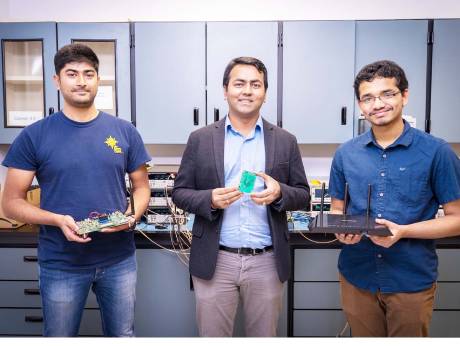
Imagine a WiFi chip that uses 5000 times less power than existing networks. That would un-tether your smart speaker!
By Anand Parthasarathy
Bangalore, June 23 2020: For all their versatility as vocal information and control centres ( and potential health monitors), smart speakers suffer from one shortcoming: they need to be connected at all times to a source of mains power. Top on the wish list of many users is this: 'I wish I could move it around the house and work it unplugged'!
__________________________________________________________________
This story will appear in the July 2020 issue of Science Reporter (Vol 57 issue 7)
--------------------------------------------------------------------------------------------------------------
That wish may come true, sooner rather than later, thanks to the efforts of three researchers of Indian origin. Dr Dinesh Bharadia, who holds a doctorate from Stanford University and is an alumnus of the Indian Institute of Technology, Kanpur, hails from Ichalkaranji in the Kolhapur district of Maharashtra.
Now Professor of Electrical and Computer Engineering, at the Jacobs School of Engineering, University of California at San Diego, Dr Bharadia and his graduate students who include, Rohit Kumar and Manideep Dunna, have developed an ultra low power WiFi radio unit, smaller than a grain of rice, that consumes just 28 microwatts of power, while transmitting data at 2 megabits per second.
The radio chip is so frugal with power, that it can fuel a whole new class of Internet of Things applications, without needing to plug devices into a power socket. For starters, that Amazon or Google smart speaker will work for a year without needing a recharge or a mains cable. Bharadia's team presented their work at an international conference in San Francisco in February this year.
" You can connect your phone, your smart devices, even small cameras or various sensors to this chip, and it can directly send data from these devices to a Wi-Fi access point near you. You don’t need to buy anything else. And it could last for years on a single coin cell battery', says Bharadia.
The current work builds on Bharadia's research at Stanford which won him the prestigious Young Scholar award of the Marconi Society. This involved duplex radio technology, where one could talk and listen at the same time on a cellular network.... technology that he feels, has huge potential in countries like India with very dense mobile phone usage.